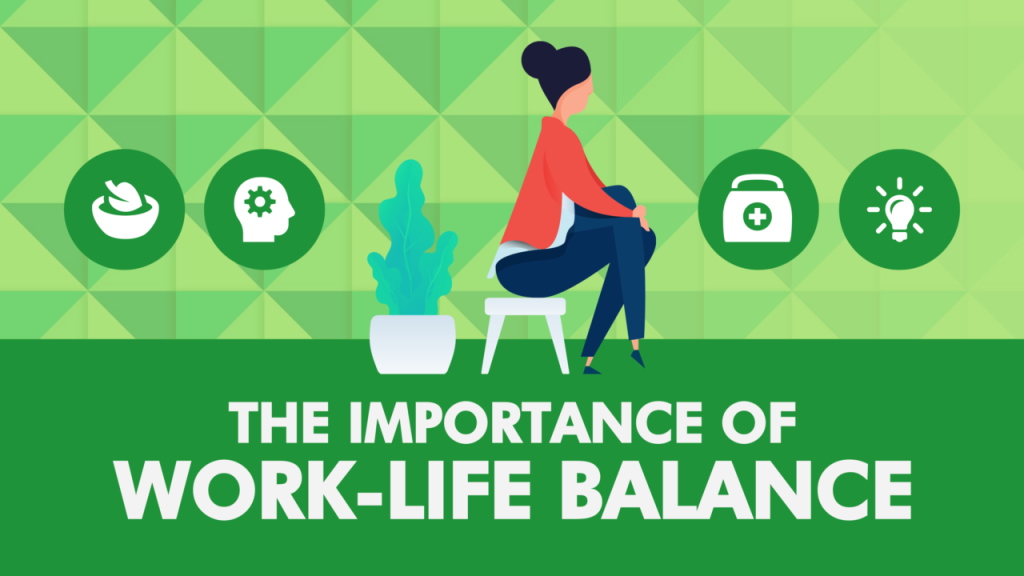The Importance of Work-Life Balance
Recently, work-life balance has received a lot of attention, and for good reason! What does this entail for those in leadership or HR positions? It’s critical to recognize the importance of balance in fostering motivated and content employees. Everyone can perform effectively at work and take care of their personal welfare outside of the workplace when they have a good work-life balance. Let’s investigate how:
Employment-Life Harmony in the News
Recently, a research conducted by Aviva has generated some controversy. It was discovered that people’s priorities had shifted from salaries to work-life balance since the outbreak. According to Aviva, more employees (41%) than (36%), stated that the work-life balance was what drew them to their present position. Comparing this rating to 2019, prior to the epidemic, is a change. Each of our lives is significantly impacted by our work. Our income guarantees that the food is on the table, the lights are on, and the rainy-day pot is filled. Nobody is undervaluing the significance of making enough money to make a living, even with the impending energy crisis and cost of living issues weighing heavily on everyone’s thoughts. This merely makes striking a work-life balance more difficult! Our social media and technological connections are making us more and more interconnected. Working from home has become the new standard for many people. It’s getting more and harder to keep work and personal life apart. It is customary to work on our computers on the weekends, answer business calls at the dinner table, and check our emails constantly. How did this come to be accepted?
Employees are under more pressure to meet the higher expectations of their employers, which causes them to perform better. People now realize they need to find greater balance in their lives, suggesting that these demands have reached a breaking point. It is your duty as a company leader to assist everyone on your team in balancing the demands of their personal and professional life. Even the most committed workers may still be having trouble striking a balance.
How Much Does Work-Life Balance Matter?
In addition to being beneficial for relationships and overall health, a healthy work-life balance may also raise employee productivity and, eventually, performance. Simply said, your employees will work harder, make fewer mistakes, and be more likely to become brand ambassadors if they don’t see their jobs as a chore.
Companies with a reputation for promoting work-life balance have grown increasingly appealing, particularly in light of the challenges associated with luring and keeping younger employees in this day and age. Keeping your current staff content may be a smart strategy in light of this. By emphasizing work-life balance, you may increase retention rates and attract a valuable talent pool for new hires. It will guarantee a high caliber of internal talent while saving time and money.
Here are some more reasons why work-life balance is important for your people and your organisation:
1. Less Health Issues
Our physical and emotional health are at risk when we are overworked and under stress, in addition to endangering our social life.
It goes without saying that being overworked, exhausted, or stressed out will negatively impact our health. Having a poor work-life balance can cause a number of symptoms that are detrimental to our health. This includes anything from the common cold to life-threatening illnesses like strokes and breathing issues. White-collar professionals who worked three or more hours over what was necessary had a sixty percent increased risk of heart-related issues compared to those who did not work overtime.
By promoting self-care and finding equilibrium, you may drastically reduce health issues and absenteeism. This will guarantee that individuals desire to be a part of the business and culture and that your organization operates more efficiently during business hours.
2. Reduction in “Burnouts”
Everybody experiences stress from time to time. It cannot be avoided. Workplace burnouts may be prevented, therefore you should take steps to make sure your employees don’t have one. When we feel overburdened and unable to keep up with obligations, we experience burnout. Every part of our life can be negatively impacted by burnout. It is crucial to support your staff in taking time off and genuinely unwinding, as the inability to distinguish work from personal life will significantly raise the likelihood of burnout.
3. Increased Insight
We have more control over our attention span and capacity to focus on the job at hand when we establish and maintain a good work-life balance. This is referred to as mindfulness. A team that is totally focused on what they are doing, rather than worried about work or home, wouldn’t you prefer that?
Your employees will be more committed to the task at hand if you support them in striking a healthy work-life balance. Retention rates, output, and eventually profit will all increase as a result.
Tips to Improve Work-Life Balance
Incorporate Little Breaks Throughout the Day:
It’s critical to promote little breaks throughout the day if your employees aren’t able to take time off. The human body was not intended to spend hours each day gazing at a bright screen. It is detrimental to both our physical and emotional health.
In order to counter this, you may think about setting up a gaming area where individuals can interact and divert their attention from work. Think about promoting short walks for meetings outside and promoting moderate activity throughout the day. You could even go have coffee together as a group. Investing in subscriptions to mindfulness or meditation applications can help individuals relax and reduce stress. Technology can also be beneficial.
Seek Advice From Staff Members:
Why not ask your staff for suggestions if you are having trouble thinking of creative methods to help them achieve a better work-life balance?
If you observe that your people are having difficulty maintaining equilibrium, ask them what adjustments they believe might help. You will have a better understanding of your team’s thought process and be able to collaborate on initiatives going forward by working together.
Consider holding regularly planned meetings or putting in place feedback programs that will provide you data-driven insights to assist you in facilitating these conversations. In this manner, you can precisely assess your employees’ emotional states at any given moment and make necessary modifications to guarantee that they are in a balanced state.

